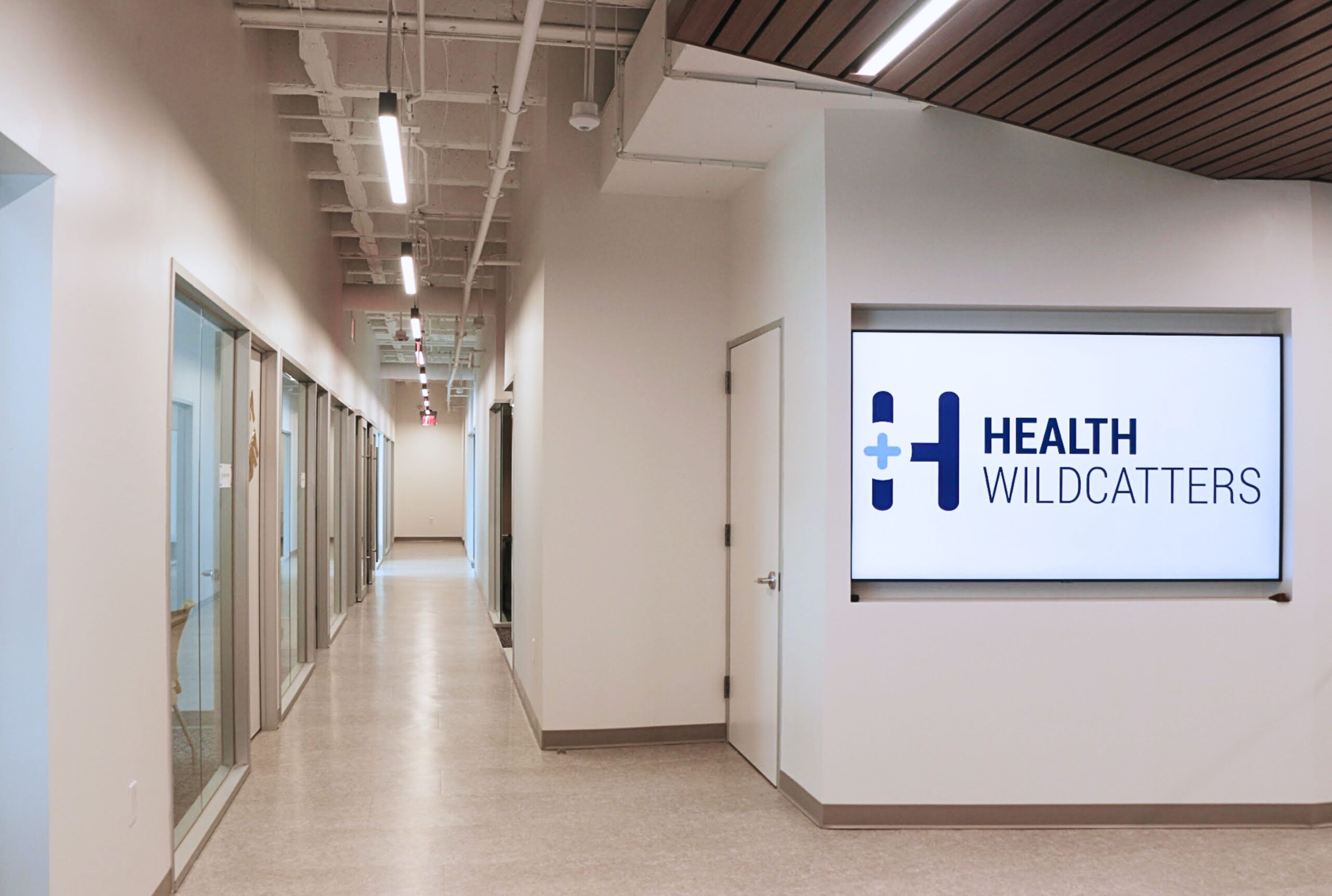
NOTE: Health Wildcatters is a partner for MedCity’s INVEST Digital Health conference at Pegasus Park in Dallas on September 18. To learn more, click here.
Venture capitalists can be a tough group for startups to access. They will take pains to shield their identity at conferences, tactfully turning around their badges, anticipating entrepreneurs clamoring for an audience to pitch their businesses. They prefer meetings on their terms.
The struggle is real for startups and the accelerators that seek to support them. Dr. Hubert Zajicek, Health Wildcatters Partner, Co-Founder and CEO, has developed a matchmaking strategy that balances accelerator startups’ capital-raising activity with respect for healthcare investor time commitments. The HW Venture Center was designed with the needs of both groups in mind. The center expands the accelerator’s office space to enable investors to have office hours as well as accommodate startups interested in anchoring themselves to Health Wildcatters’ Pegasus Park location. Investors passing through Dallas have a place where they can work and take meetings with startups that match their investment strategy priorities.
Zajicek noted that 14 investors have committed to offering office hours at the HW Venture Center in July and August. Participating firms include: SHD Partners, Tower Capital, View Ventures, Averin Capital, Belal Badat Ventures, Heinz Ventures, GPG, Mimosa VC, Cowtown Angels, Golden Seeds, the Toronto Stock Exchange, and Corewell Health Ventures.
Health Wildcatters has been adding venture capital and angel investors to the HW Alliance since its launch in 2016. Currently, it has 71 investors with a goal of 100.
The startups using this space have a connection to Texas, said Zajicek. Investors who may be visiting Dallas for a board meeting or have a connecting flight at one of the nearby airports are encouraged to use the time and the office space to take meetings with one or two startups.
This program is open to all startups in the healthcare space, including Health Wildcatter portfolio and resident companies. Startups with ties to Texas or Dallas are particularly encouraged to participate.
“We provide details of startups that meet the investors’ criteria. They are given 24 hours to respond. That’s as simple as it gets,” Zajicek said. He pointed out that seven VCs are meeting up with startups at the HW Center this month and another seven are scheduled in August.
Zajicek believes Dallas has benefited from a growing trend dating back even before the Covid-19 pandemic. Investment funding is increasingly allocated to startups in hubs across middle America even as traditional hotspots for investment such as Palo Alto, Boston, New York continue to dominate.
Zajicek also called attention to healthcare initiatives at the state level designed to foster medical research and investment. Established in 2007, the Cancer Prevention & Research Institute of Texas is now a $6 billion fund to invest in cancer research and treatments.
A similar program is in the works for dementia research. Proposition 14 would amend the state’s constitution to establish the Dementia Prevention and Research Institute of Texas and authorize the state comptroller to allocate $3 billion from the general fund to the Dementia Prevention and Research fund to invest in research, prevention, and treatments for dementia and dementia-related diseases such as Alzheimer’s disease and Parkinson’s disease.
AI is the theme of the MedCity INVEST Digital Health conference in Dallas. Zajicek noted that a few portfolio companies that use AI, such as Lantern Pharma, Rhythm AI, and NexusMD. While he emphasized the need to balance human touch with automation, Zajicek believes AI could be especially useful in making computer interactions less painful and time consuming, such as for image procurement and prior authorization. Those AI applications are just the beginning of the kinds of healthcare innovations we can expect in the years to come.






